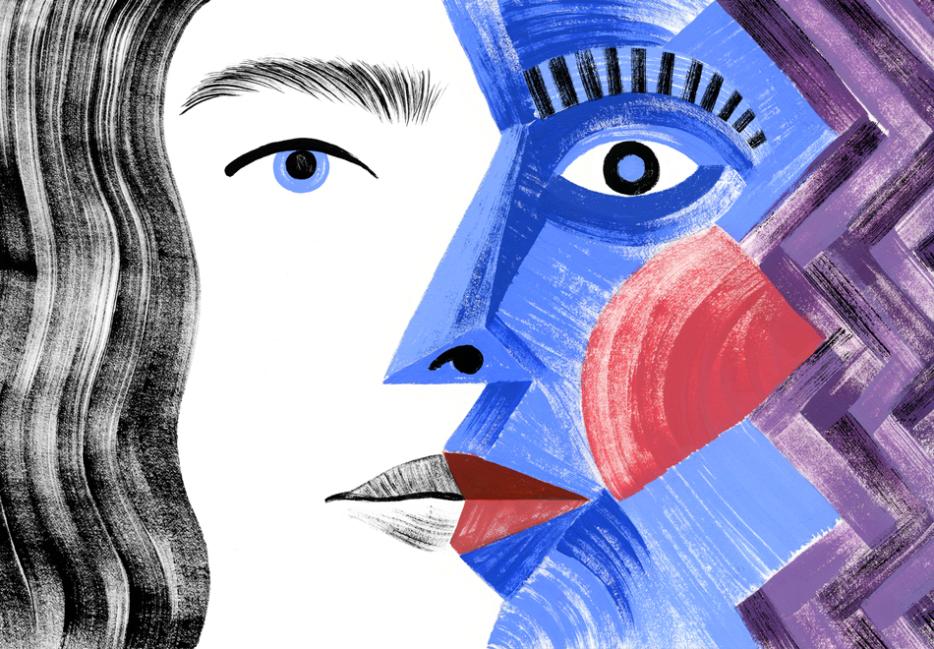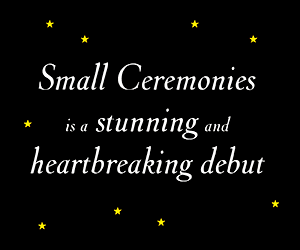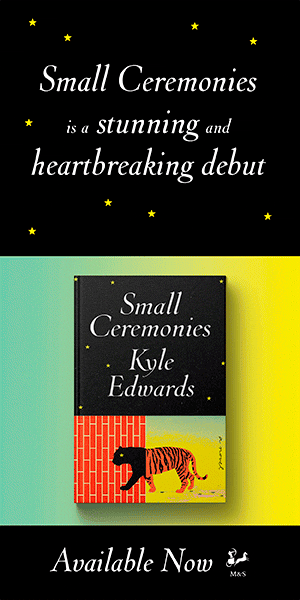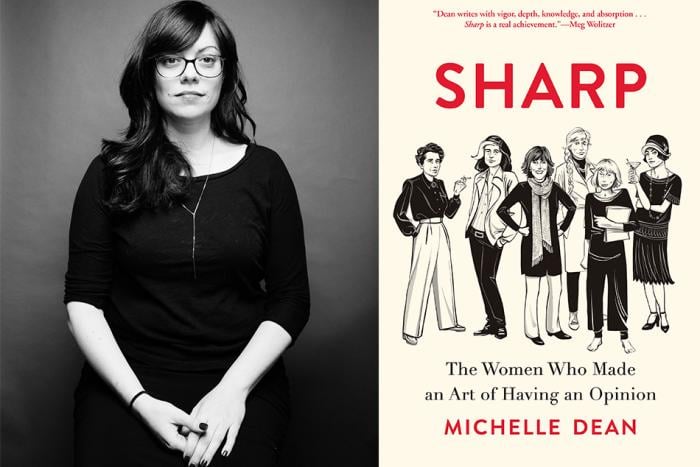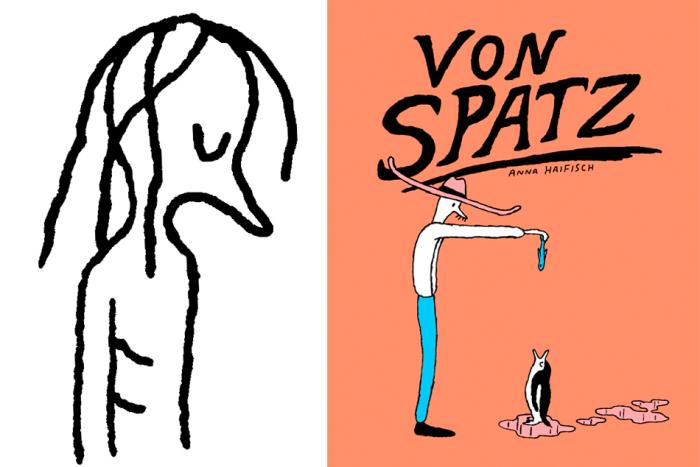After years of threatening to write an autistic teen sex comedy based on my own neurodivergent and sexually frustrated adolescence, I had the opportunity to receive notes on a few chapters from an agent. I furtively sent off a chunk of my first draft filled with observations on what it’s like to have a seizure in the middle of sex ed and the ways in which an inability to read social cues hampers one’s ability to lose their virginity on schedule. He told me that it was “very REAL but also pretty raw.” The criticism I could handle. It was, undeniably, raw, in the way that most first drafts are. It was his compliment, sitting there on the screen in its assured, emphatic capital letters, that threw me.
A week later, a fellow mixed martial arts writer reached out to tell me that he liked a piece that I’d written on the late fighter Kimbo Slice’s importance to autistic people. A “really amazing and real read,” he said. I didn’t like seeing that praise when it arrived in lower case letters, either.
Like many people with my neurotype, I have a certain affinity for recognizing patterns, and here’s one that I’ve found: no one ever said that my writing was “real” before I knew that I was autistic, or before I started writing about my autism.
Despite the commonly held beliefs about the autistic mind, I am perfectly capable of seeing outside of my own perspective. I know full well that that this is not a phenomenon unique to me or those like me. Another pattern that I’ve noticed while observing other people—like white rock critics assessing hip-hop, men explaining women to themselves, or Torontonians who once visited Thailand debating the ketchup content of Pad Thai—is that people who aren’t marginalized in some way love appointing themselves the authenticity police of those who are, often with a passion and confidence that’s inversely proportionate to their actual knowledge.
There is something about the word “real,” though, that hits me specifically as an autistic human.
As a child, it was the crux of my recurring nightmares, awful, bone-chilling romps through a developing psyche that I can still recall in lurid detail. In the dreams, I was a copy that my parents had been forced to take in when the actual Sarah had died. I would try to forget this fact, but there was always some little detail that would come rushing back to me to ruin the illusion. “I remember that,” I would say each time, usually before I woke up crying. “From when I was real.”
These dreams came up when I was finally tested for autism spectrum disorder as an adult. “You were beginning to realize that you were different, but you didn’t understand how yet,” my assessor told me as he confirmed a diagnosis that my terrified subconscious had apparently picked up on almost a quarter of a century earlier. “This was your brain’s way of trying to process that information.”
I processed all of this new information with a mix of perverse pride in and a motherly protectiveness for my younger self—what twisted genius comes up with something like that? What scared little girl has to?—and a life-giving amount of relief. Weight had been lifted off my shoulders, my chest, and my brain simultaneously. I was autistic. I saw, heard, tasted, smelled, and interacted with things differently than other people, but I was human. Atypical, but real.
*
Where I saw the first irrefutable proof of myself, though, so many others saw a referendum.
“But you’re not really autistic,” an acquaintance posited a few weeks later, when I was still testing out how and if to introduce this new explanation for everything into casual conversation. “You can have conversations. You’re out at a bar. I have a friend who's autistic. Like, real autistic. You can tell. And he could never do this.” He took my wandering eyes and distracted response as signs of concession, not as a testament to my at least somewhat obvious autism, and moved on. I soon got used to this type of exchange. I’m still hoping that I’ll eventually get better at handling it.
I spent twenty-seven years trying to convince people that I was normal enough to accept, or at least leave alone, and no one ever fully bought it. When I finally knew why that experiment was such an ongoing failure, though, few believed that either. I was using it an excuse. I was exaggerating. I was faking. I was not as autistic as someone else someone knew and was, therefore, not really autistic.
These comparisons only ever go in one direction. No one has ever said to me, “Temple Grandin is a successful scientist, writer, and public speaker, and you have the career of a mildly plucky freelancer half your age. You can’t possibly be autistic.” I suspect that this is because no one is genuinely trying to weigh what they know about me against a set of diagnostic criteria, or fit me into their greater understanding of autistics in the world. What people are really doing when they’re trying to determine if I’m a real autistic is figuring out if I make them uncomfortable or sad enough to count. If I show any coping skills, any empathy, any likability, any fun—essentially any humanity—I must be dismissed.
This separation between real autistics and people who are “just quirky,” “just awkward,” or “almost too high-functioning to count” is a mental dance that non-autistics have to do whenever they’re confronted with a three-dimensional autistic human being in the flesh. Otherwise everything they’ve ever thought, everything they’ve ever been told about us, starts to seem a little monstrous.
*
In NeuroTribes: The Legacy of Autism and the Future of Neurodiversity, the groundbreaking 2015 tome on the subject, author Steve Silberman quotes an interview that Ivar Lovaas gave to Psychology Today in the ‘70s. “You have a person in the physical sense,” the clinical psychologist said of the autistic children that he was studying. “But they are not people in the psychological sense.”
Few are willing to put it so boldly now, but despite the efforts of artists, self-advocates, and allies like Silberman, the philosophy remains almost unchanged and unchallenged forty years later. From common language to science to pop culture, almost no one believes that autistic people are real people at all.
I see it in the way we’re described as trapped in our own bodies, as prisoners of Autism, an otherworldly evil that has kidnapped us and stolen our voices like a cackling Disney villain. It’s in the way that the organizations that claim to support us insist on imagery that compares us to wayward puzzle pieces and language that alludes to us as both somehow missing and the bringers of an overwhelmingly tragic epidemic. One 2015 report warned of a “tsunami of teens with autism” who would reach adulthood in the coming years. It’s in both the name and the ethos of our most prominent charity, Autism Speaks, which assumes that we can’t do so for ourselves and therefore appoints itself the savior who can and should assume the responsibility, without any thought as to whether they should be listening, as well.
The missing can’t be reached for comment. The voiceless have no means with which to express themselves. The not-really-theres have no internal life to share, anyway. So no one tries. In science, we are glorified lab rats, put through byzantine tasks to determine why we do certain things—one recent study involved putting autistic adults through virtual reality scenarios in which they tried to catch burglars to figure out why we have issues with eye contact—but not simply asked what makes us tick. The idea that we should be considered a valuable resource on research about our own lives is still a groundbreaking one. In journalism, we are rarely considered prospective sources for stories about autism in any capacity. Experts are quoted, as are our caregivers. But we remain absent from the conversation. First-person accounts of parents and siblings are praised for their honestly, bravery, and emotion while autistic writers struggle to get published at all. The entertainment business has a similar fondness for stories about us and a distaste for stories from us. Visionaries can dream up a franchise where an autistic man can be an accountant and a hitman on the screen thanks to The Accountant, but they can’t quite bring themselves to imagine that an autistic person could be a writer, director, actor… or even a viewer who might want to see something that’s made with them in mind.
When people tell me that I’m not really autistic, they’re trying to distance me from this silencing, exclusion, and dehumanization. Not for my comfort, but theirs. They don’t want to weigh the reality of our interaction against the concept of autism that they’ve accepted. And even if they can convince themselves that it’s different for people like me, people who can talk, people who can assuage their feelings of discomfort by hiding their behaviors and trying to blend in, I know my own reality. Whatever advantages I might have as a verbal human being with a handy batch of coping and masking mechanisms in place, I am no better than anyone else on the spectrum. We are equals. When I say that autistic lives have value, I’m speaking for every single one of them. When other people imply the opposite about any single one of us, they imply it about all of us.
*
As a teenager, my nightmares about being a hollow specter trying to pass as human eventually gave way to fantasies of being an otherworldly genius. Perhaps no one understood me, I thought, because I was simply too complex and too smart. I spent a lot of time reading James Joyce alone in my room and promising myself that I’d grow up to be the kind of writer who makes their readers work to understand their dense prose, heady concepts, and their labyrinth of allusions and metaphors. Now that I’ve spent so much of my life working to be acknowledged at all—moving, sounding, and performing in a manner that won’t push people away before they can hear me—now that I understand what an immense privilege it is to have anyone who wants to put the effort into understanding you, now that my tiny writing career has given me an opportunity that’s denied to most people like me, I try to write plainly.
It’s not an aesthetic or a career decision that I regret often. After all of the massive, ongoing efforts that I’ve put into translating myself for non-autistic consumption, I doubt that I know any other way now, anyway. I feel the occasional pang of self-consciousness and self-recrimination when someone praises me for the simplicity or accessibility of my writing. Does it mean that my writing is simple? Does that mean that I am? But at least they’re reading. At least there’s a solid chance that they’re getting at least some of what I intended out of it.
When someone who’s not autistic tells me that my writing is real, though, it chills and confuses me almost as much as those first subconscious stabs at defining the validity of my existence once did. I might try to pass it off with a flippant “how would you know?” But the question that lingers in the back of my mind is what makes them think they know? If almost everything they know about autism is wrong, or at least skewed, then what is it about my work that has allowed them to feel that they can align my voice with their beliefs? Did the basic structure of my unornamented prose strike them as special needs enough to accept? Did a moment of vulnerability convince them that I was tragic enough to actually be from the spectrum? Or was I too placating in my argument? Can they embrace my work—can they feel comfortable in telling me what it means—because I haven’t challenged them enough?
For as long as autistic narratives are dominated and controlled by others, these are the concerns that will fester in the pit of my stomach and the back of my brain every time I sit down at my laptop, start to rock from side to side, and write. I have no interest in being told that my writing is real. I need my work to tell you that I am.


